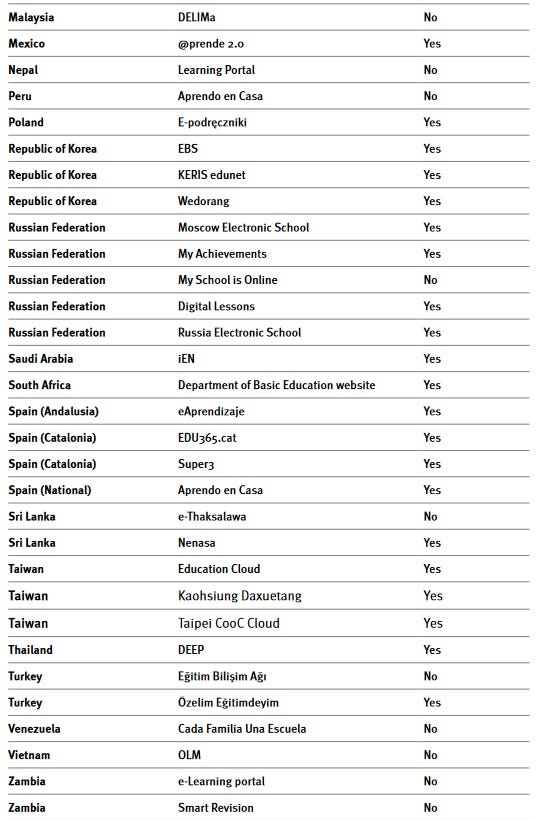
In a world where digital platforms shape the very landscape of education, consider the life of a high school student—let's call her Maya. Her days are filled with online courses, interactive quizzes, and virtual discussions, all orchestrated by a digital platform that promises personalized learning. Maya embraces the convenience and adaptability, believing she's charting her educational journey on her terms. Yet, behind the screen, a different story unfolds—one of surveillance capitalism quietly molding the future of education.
In Maya’s daily interactions with the platform, every click, keystroke, and interaction is meticulously collected, forming a digital trail that reveals her learning style, preferences, and even her emotional responses. Unbeknownst to Maya, her data is not merely used to enhance her learning experience; it’s harvested for profit and manipulation. Nor it is just one “EdTech” company behind a particular platform. The software in Maya’s school is one of dozens of education tech platforms identified by Human Rights Watch that harvest school data to monitor the actions and behaviors of students[i]. They collect and share student data with third-party advertising companies without parental consent. Even assuming that some parents might opt into this kind of monitoring, they aren’t offered the opportunity to, because they’re never informed that it is going on. Every bit of Maya’s secretly collected sensitive data is vulnerable to theft by hackers. The company building a profile of Maya will use it to predict her choices, shape her beliefs, and ultimately influence her actions. Welcome to the complex world of surveillance capitalism, where education becomes a strategic playing field for profit and power.
The term "surveillance capitalism," coined by Shoshana Zuboff, encapsulates the phenomenon in which corporations, especially tech giants like Google and Facebook, collect and commodify personal data. These corporations employ sophisticated methods, from cookies to facial recognition, to track behaviors and interactions both online and offline. The data collected creates intricate profiles that are then sold to advertisers, marketers, and other third parties. As the human brain does not develop full impulse control circuitry until around age 25, the collection of this kind of personal data offers a pernicious way to clandestinely manipulate young people around the world, often with national governments’ consent.
Per the HRW report,
“Human Rights Watch finds that governments’ endorsements of the majority of these online learning platforms put at risk or directly violated children’s privacy and other children’s rights, for purposes unrelated to their education.”
In many cases, it is not merely that governments are turning a blind eye to EdTech that harvests student data and sells it to AdTech companies: in dozens of countries, it is local or national governments that have developed the EdTech without telling their citizens how their children’s information is being gobbled up and resold.
From the HRW report:
Maya's story echoes a larger trend—one that's reshaping the landscape of education, particularly in the wake of the COVID-19 pandemic. The demand for online education that exploded during the pandemic provided fertile ground for EdTech companies that wanted to scrape every bit of student data they could get their hands on. While the digital tools offered accessibility and personalization, they came at the cost of students' and educators' privacy and autonomy. The platforms record immense amounts of data and not merely academic performance and learning styles. They will frequently also harvest phone/email contact lists, locations, and social interactions. The results are far-reaching, from targeted ads to predetermined content, all guided by algorithms designed to subconsciously mold behavior.
Despite the explosion of child-focused surveillance capitalism, parents do have a way to push back.
Protecting children from surveillance capitalism requires a multi-pronged approach:
The world of education stands at a crossroads, where the promise of technology is matched only by the potential for manipulation. But with informed choices and collective action, students, educators, and communities acting collectively can reclaim control over their data, their learning, and their future.
In the realm of education, the fight against surveillance capitalism extends beyond individual actions. It calls for a collective effort to redefine the boundaries of privacy, autonomy, and the very essence of learning.
Support Alternative Models:
Do not passively accept that your child has to be subject to these technologies. Go to school board and parents’ night meetings, and find what “EdTech” is being used in your child’s schools. If it is one of the EdTech programs identified in the Human Rights Watch report (link at end of article), tell other parents. When you engage the school staff, don’t just complain about how the software they use spies on the children, present the alternatives, like The Free Software Foundation[ii] Engage with organizations and movements that advocate for more democratic, participatory, and emancipatory educational models. The Free Software Foundation and Peer 2 Peer University[iii] strive to create learning environments that prioritize user empowerment and foster equitable access to knowledge.
Find Allies:
Join the ranks of organizations like the Electronic Frontier Foundation[iv], and European Digital Rights[v] that champion digital rights and privacy. Add your voice to petitions and campaigns that demand stronger privacy laws and regulations, challenging the unchecked power of surveillance capitalism.
Raise Your Voice:
Participate in protests and rallies that denounce the harms of surveillance capitalism. Movements like Stop Watching Us, (friend of The Technoskeptic) Restore The Fourth[vi], and Global Privacy Day[vii] provide platforms to demand change and raise awareness about the implications of unchecked data collection and manipulation.
As Maya's journey intertwines with the growing movement against surveillance capitalism, she embodies the power of individuals to effect change. Through informed decisions, active advocacy, and collective engagement, students, educators, and communities can reshape the landscape of education. The battle against surveillance capitalism is not insurmountable; it's a call to action—a call to reclaim control over our data, our choices, and the future of learning itself.
[i] “How Dare They Peep into My Private Life?” Human Rights Watch
[iii] Peer 2 Peer University







Glad to hear it. We actually have a detailed review of Surveillance Capitalism with a big excerpt of the book in our hardcopy archives. I'll be digging out and putting that online in a couple of months :-)
Please keep me on your mailing list and will become a paying member in the near future.
Thanks
Surveillance Capitalism as described by Zuboff et al....very heavy stuff...where are the right to privacy laws in this regard.